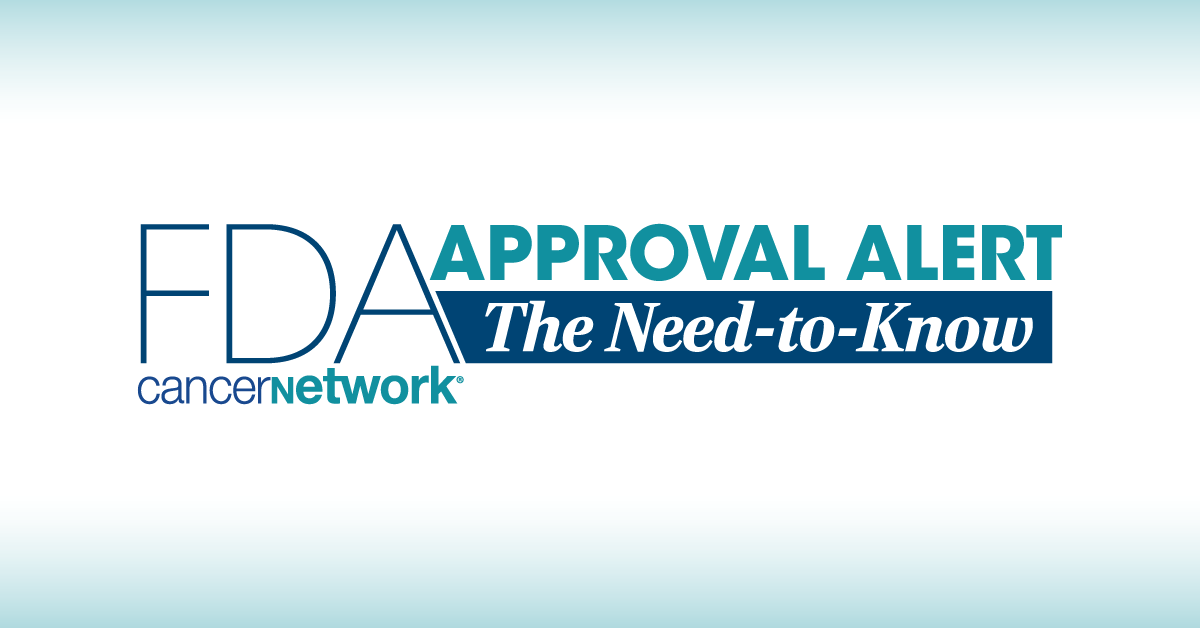FDA Approves Belzutifan in Adult/Pediatric Pheochromocytoma and Paraganglioma
Data from the LITESPARK-015 trial supported the FDA’s decision to approve belzutifan monotherapy in patients with advanced, unresectable, or metastatic PPGL.
Supporting data for the approval came from the phase 2 LITESPARK-015 trial that evaluated belzutifan monotherapy in patients with advanced, unresectable, or metastatic PPGL.

The FDA has approved belzutifan (Welireg), an oral HIF-2α inhibitor, for the treatment of adult and pediatric patients 12 years or older with advanced, unresectable, or metastatic pheochromocytoma or paraganglioma (PPGL), according to a press release from the agency.1
Supporting results came from the phase 2 LITESPARK-015 trial (NCT04924075) that evaluated the efficacy and safety of belzutifan monotherapy in patients with advanced PPGL with HIF-2α genetic alterations. Overall, cohort A1 had 72 patients with measurable disease verified by blinded independent central review with a documented histopathological PPGL diagnosis and locally advanced or metastatic disease not amenable to surgery or curative treatment.
A prior press release from the drug’s developer noted that belzutifan monotherapy elicited an improvement in overall response rate (ORR) and duration of response (DOR) in the population.2 Additional data on this patient population are set to be presented at an upcoming medical meeting.
Results from the FDA's press release highlighted an ORR of 26% (95% CI, 17%-38%) with a median DOR of 20.4 months (95% CI, 8.3-not reached). Additionally, of the 60 patients at baseline, 32% (95% CI, 20%-45%) had a reduction in antihypertensive medications by at least 50% for a minimum of 6 months.
Previously, in January 2025, the FDA granted priority review to belzutifan in the aforementioned indication.2
In February 2025, results from cohort B1 of the LITESPARK-015 trial were presented at the 2025 Genitourinary Cancers Symposium, showing results in patients who are Chinese with von-Hippel Lindau disease with renal cell carcinoma (RCC), solid central nervous system (CNS) hemangioblastoma, solid and cystic CNS hemangioblastoma, and pancreatic neuroendocrine tumors.3
The estimated trial enrollment was 322 patients, and all received 120 mg of oral belzutifan once daily until progressive disease or discontinuation.4 Patients with clinically significant cardiac disease; prior treatment with chemotherapy, targeted therapy, biologics, or investigational therapy within 4 weeks of first study dose; history of malignancy unless curative treatment has been completed with no evidence of malignancy for 2 years; and who are unable to swallow oral medication were excluded from participating in the trial.
In patients with RCC (n = 18), the ORR and DOR were 83% (95% CI, 59%-96%) and not reached (NR; range, 2.7+ to 11.1+), respectively; in patients with solid CNS hemangioblastomas (n = 7), the ORR and DOR were 100% (95% CI, 59%-100%) and NR (range, 8.1+ to 14.1+); in patients with solid and cystic CNS hemangioblastomas (n = 10), the ORR and DOR were 60% (95% CI, 26%-88%) and NR (range, 5.6+ to 14.1+); and in patients with pancreatic neuroendocrine tumors, the ORR and DOR were 67% (95% CI, 35%-90%) and NR (range, 2.8+ to 11.3+).
In the patient populations described above, all-cause adverse effects (AEs) occurred in 100% of patients, grade 3 AEs occurred in 39%, and serious AEs occurred in 13%. AEs led to discontinuation in 1 patient and death in 0.
Treatment-related AEs (TRAEs) of any grade occurred in 100% of patients, TRAEs of grade 3 occurred in 26%, and serious TRAEs occurred in 1 patient; TRAEs led to discontinuation in 1 patient and death in 0.
The most common AEs were anemia (100%), increased alanine aminotransferase (61%), increased aspartate aminotransferase (43%), asthenia (43%), and upper respiratory tract infection (39%).
References
- FDA approves belzutifan for pheochromocytoma or paraganglioma. News release. FDA. May 14, 2025. Accessed May 14, 2025. https://tinyurl.com/2j5eetc6
- FDA grants priority review to Merck’s application for WELIREG® (belzutifan) for the treatment of patients with advanced pheochromocytoma and paraganglioma (PPGL). News release. Merck. January 27, 2025. Accessed April 15, 2025. https://tinyurl.com/5x5ta339
- Qiu J, Zhou J, Cai L, et al. Belzutifan monotherapy in Chinese patients (pts) with von Hippel-Lindau (VHL) disease–associated tumors: Results of LITESPARK-015 study. J Clin Oncol. 2025;43(suppl 5):534. doi:10.1200/JCO.2025.43.5_suppl.534
- Belzutifan/MK-6482 for the treatment of advanced pheochromocytoma/paraganglioma (PPGL), pancreatic neuroendocrine tumor (pNET), von Hippel-Lindau (VHL) disease-associated tumors, advanced gastrointestinal stromal tumor (wt GIST), or solid tumors with HIF-2α related genetic alterations (MK-6482-015). ClinicalTrials.gov. Updated April 11, 2025. Accessed April 15, 2025. https://tinyurl.com/5zmfyejx